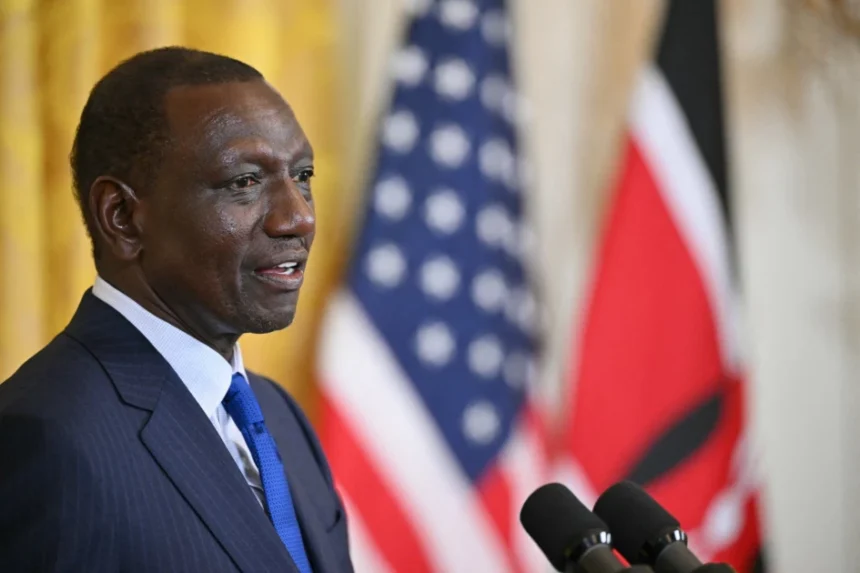The United States government has expressed concern over what it describes as a deterioration in Kenya’s human rights situation in 2024, citing reports of unlawful killings, disappearances, torture, and restrictions on media freedoms.
In its latest Country Reports on Human Rights Practices, the U.S. Department of State says President William Ruto’s government committed numerous abuses during youth-led ‘Gen Z’ protests in June and July 2024 against proposed tax increases.
“Kenya experienced a deterioration in the human rights situation during the year,” the report says. “In response to nationwide protests in June and July, authorities reportedly committed numerous abuses, including unlawful killings, physical violence, and arbitrary arrests and detentions.”
The Kenya National Commission on Human Rights (KNCHR) recorded 60 protest-related deaths during last year’s demos, which initially began in opposition to the 2024 Finance Bill and morphed into anti-government protests after Ruto withdrew the bill.
The Independent Policing Oversight Authority (IPOA), meanwhile, reported 50 deaths and 199 injuries, blaming excessive police force.
‘SERIOUS IMPUNITY PROBLEM’
The U.S. State Department report also details cases of arbitrary arrests and detentions of protesters and dissidents, enforced disappearances, and the use of hooded, masked officers in civilian clothes during operations. This is despite the High Court last year barring the police from wearing civilian clothes, masks, and concealing their faces during protests.
In December 2024, KNCHR reported 82 cases of abductions or enforced disappearances since June, with 29 people still missing.
“Those released stated they were warned by individuals believed to be police officers not to post protest-related content on social media,” the U.S. report says, further pointing out prolonged detention without charges of those arrested.
Similarly, President Donald Trump’s government notes reports of Kenyan police and prison officials using torture and violence during interrogations and to punish pretrial detainees and convicted prisoners.
“According to human rights NGOs, beatings, bondage in painful positions, and electric shock were the most common methods used by police,” the State Department says.
“Impunity was a serious problem across security agencies. NGOs noted the government neither acknowledged police abuses nor held any police officers accountable for actions in the June and July Gen Z demonstrations.”
The report points out cases of police officials at times resisting investigations and detaining human rights activists who registered complaints regarding government abuses.
“Police used disciplinary transfers of officers and other methods to hide their identities and frustrate investigations into their alleged crimes,” the U.S. says, citing rights groups.
TRANSNATIONAL REPRESSION
Washington also notes reports of transnational repression, citing the July 2024 incident where a registered Ugandan refugee living in Kenya was arrested in Kisumu with 36 Ugandan members of the Ugandan opposition political group FDC.
The joint Kenyan-Ugandan security agency operation saw the group, which had travelled to take part in a leadership and governance training course, forcibly returned to Uganda and charged with terrorism-related offences.
Then, in November, veteran Ugandan opposition politician Kizza Besigye was kidnapped by Ugandan agents while visiting Nairobi for a book launch and driven across the border to Kampala.
While Kenyan government officials initially claimed they were unaware of the abduction, Ugandan authorities maintained it was a coordinated action. He is facing treason charges.
At the same time, the U.S. State Department also flags intimidation and assaults on journalists, including during live broadcasts, and instances of media self-censorship following government threats.
“The Media Council of Kenya reported at least 24 instances of violence and harassment against journalists by police and government-aligned groups during the Gen Z protests in June and July, including detention and targeting with tear gas and other nonlethal weapons,” says the report.
Other issues highlighted include poor enforcement of labour rights, unsafe working conditions, child marriage, and the continued practice of female genital mutilation in some communities.
“The government took steps to identify and punish officials who committed human rights abuses,” the report says, “but impunity was a problem at all levels of government.”



